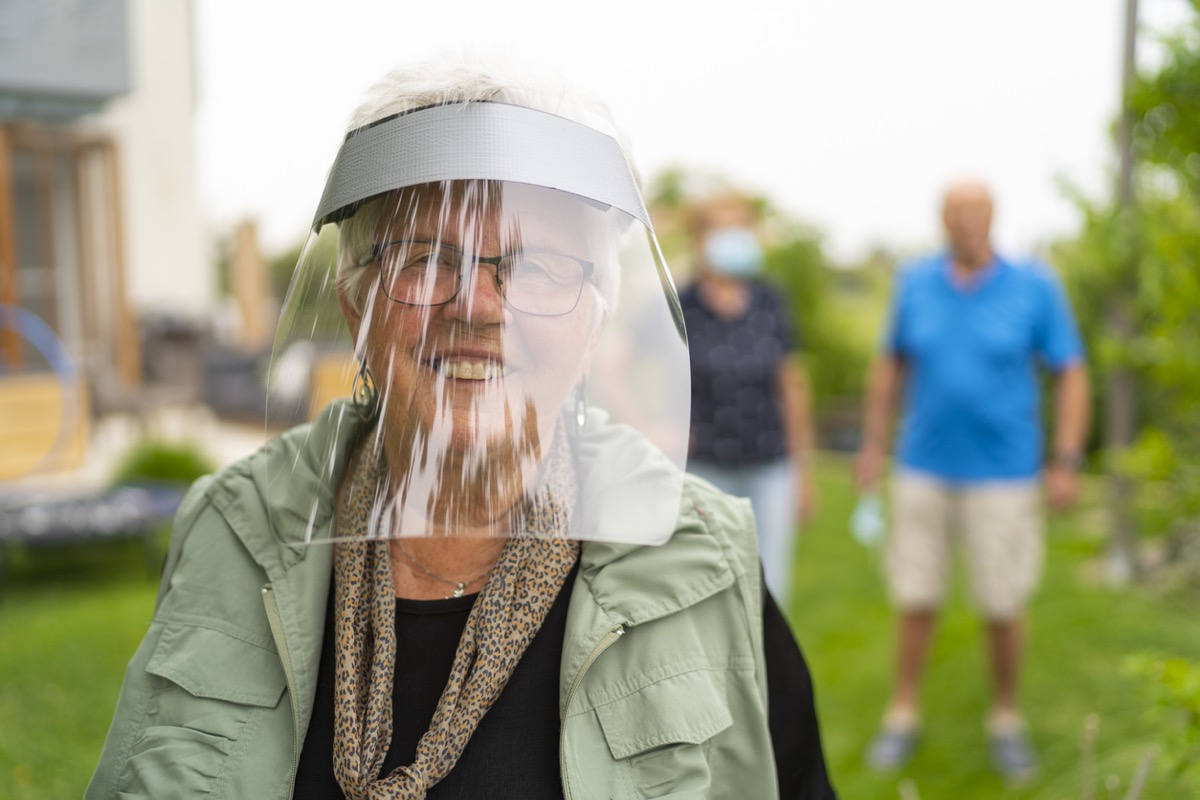Because face masks are worn directly on the skin, they may need to be adjusted after moving or talking, which creates a prime opportunity to contract the virus. “People who wear these homemade cloth masks are invariably touching their face constantly to adjust it, and we know that touching your face is one routine mechanism for infecting you,” Adalja explained. He also pointed out that face shields—which are legally viable alternatives to face masks in states like New York—can make it much easier to talk and breathe. This can be especially important as warmer summer weather can make masks particularly uncomfortable. “They don’t impede your mouth, and you’re talking and you’re breathing as much,” Adalja said. “People subjectively feel very muffled when they’re wearing a mask, and they feel less comfort when they’re breathing when they’re wearing a mask.“ae0fcc31ae342fd3a1346ebb1f342fcb Other doctors have said that, besides the comfort factor, face shields can actually do a better job of protecting anyone who’s wearing one than a simple mask can. “Face shields that completely cover the face from forehead to chin and extend to both ears may do a better job than masks at stopping the viral spread,” Leann Poston, MD, a licensed physician who works as a medical expert for Ikon Health, previously told Best Life. “The purpose of a face mask is to contain the wearer’s secretions. They were never designed to protect the wearer from any viruses or bacteria, but instead, to protect everyone else from the wearer’s secretions.” If you’re considering adding a face shield to your face covering rotation, experts warn that you should make sure you buy the right size. “Ones that go below the chin and back to the ears offer more protection than those that are more open,” Bruce Polsky, MD, an infectious disease specialist at NYU Winthrop Hospital, told Yahoo! News. RELATED: For more up-to-date information, sign up for our daily newsletter. There’s even scientific evidence to support the efficacy of face shields versus face masks. A 2014 study published in the Journal of Occupational and Environmental Hygiene analyzed how well face shields block aerosol droplets, the main way coronavirus is transmitted. By using cough simulators, researchers found that face shields block 96 percent of droplets. Meanwhile, according to a University of Chicago study, a cotton face mask can filter out 80 to 95 percent of aerosol particles. And for more on the future of masking, check out Here’s How Long You’ll Have to Wear a Face Mask, Experts Say.
